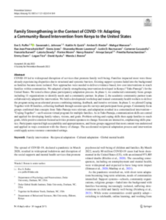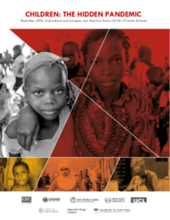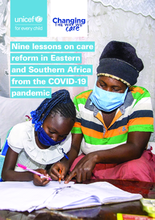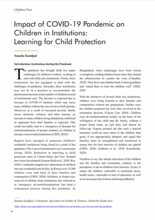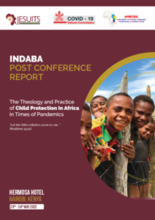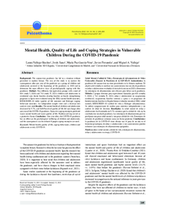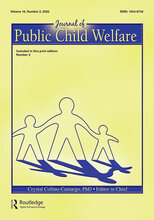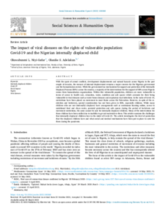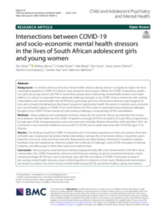This section includes resources on the response to the COVID-19 pandemic as it relates to child protection and children's care.
News on COVID-19 and Children's Care
Webinars and Events on COVID-19 Response
Displaying 41 - 50 of 756
COVID-19 led to widespread disruption of services that promote family well-being. Families impacted most were those already experiencing disparities due to structural and systemic barriers. Existing support systems faded into the background as families became more isolated. New approaches were needed to deliver evidence-based, low-cost interventions to reach families within communities. The authors adapted a family strengthening intervention developed in Kenya (“Tuko Pamoja”) for the United States.
This report updates the authors' previous findings to provide the most current estimates of COVID19 associated orphanhood and caregiver loss during the first 26 months of the pandemic (March 1, 2020 – May 1, 2022).
Key lessons learnt on how to carry out effective care reform in Eastern and Southern Africa from the COVID 19 pandemic.
Children First: Journal on Children's Lives is a bi-annual and peer-reviewed journal, launched by Delhi Commission for the Protection of Child Rights (DCPCR) with the aim of deepening and broadening the discourse on child rights by providing a platform to all persons who are engaged with
the rights of children in varied capacities to share their learnings, views and experiences in this context. This issue focuses on the continued impact on children in the Indian context in the second year of the pandemic and the disruptions caused in the children's lives. This is one of the articles in the latest issue.
This webinar hosted by the ESARO Regional Learning Platform, provides nine lessons learned on care reform from the COVID-19 pandemic with examples from Malawi, Uganda and Kenya.
This report captures the learning at a two-day conference which brought together practitioners and specialists for a critical examination of the Theology and Practice of Child Protection in Africa in Nairobi on May 23 - 24, 2022.
The aim of this study is to analyse the consequences after one year of the pandemic on a group of children and adolescents assessed at the beginning of the pandemic in 2020 and to determine the most effective ways of psychologically coping with this pandemic.
This qualitative interview study assessed the pandemic’s impact on the educational experiences of foster youth in the United States from the perspectives of their caseworkers. Participant caseworkers discussed how the pandemic affected the academic progress and social/emotional development of youth in foster care and highlighted some challenges of online learning.
This article examines the challenges that internally displaced children face in the midst of COVID-19. The article investigates the level of protection that the displaced children have and what social and medical mechanisms have been put in place to cater for them during the pandemic.
The purpose of this study was to examine socio-economic and mental health impacts of COVID-19 on South African adolescent girls and young women (AGYW) in order to understand how additional challenges brought on by COVID-19 have intersected with existing challenges, compounding AGYW vulnerabilities.

